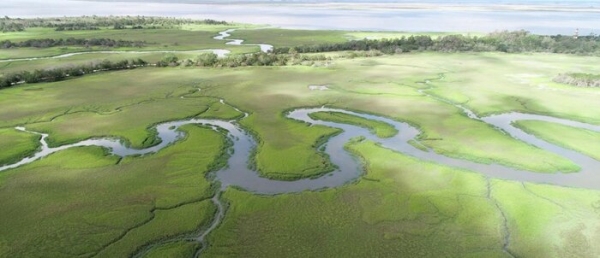A new study focusing on 750,000 acres of U.S. coastal areas finds that mussels act as ecosystem engineers, helping sustain salt marshes in the face of climate change.
Faunal organisms such as the humble mussel often play an underappreciated yet important role in protecting and building coastal ecosystems, according to a new study led by the Carbon Containment Lab at the Yale School of the Environment.
“As sea levels rise, coastal ecosystems have to adapt and evolve to changing conditions,” says Sinéad Crotty, associate director of science at the CC Lab and lead author of the study. “This study shows that small and innocuous animals that live within an ecosystem can play a critical role in helping coastal systems persist in the face of climate change.”
Mussels (Geukensia demissa) serve as “ecosystem engineers” — organisms that directly or indirectly drive habitat construction and control the availability of resources to other organisms, according to the study’s findings. Mussels are considered indicators of water quality, helping to keep streams and rivers clean by absorbing heavy metals and filtering harmful silt and particulates as they feed and breathe in aquatic ecosystems. Their shells also provide habitat and nesting sites for insects, small fish, and plants. In addition to these valuable characteristics, mussels also deposit large volumes of material on marsh surfaces through their feeding process. This contribution of sediment helps marshes grow through a process called accretion, which is the natural action of sand, soil or silt washing up to the land from the seashore or river.
Read more at Yale University
Image: Wetlands, which store vast amounts of carbon, are critical to the fight against climate change. Yale Carbon Containment Lab scientists are working with a team of researchers on Sapelo Island, Georgia to understand these complex ecosystems and inform future salt marsh restoration efforts. (Photo Credit: Collin Ortals)


